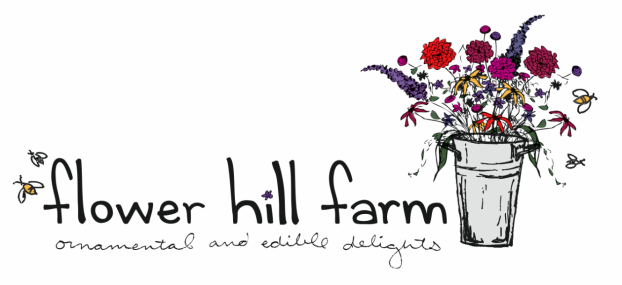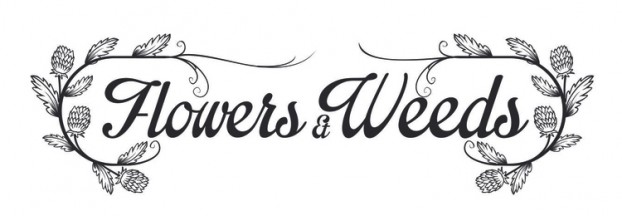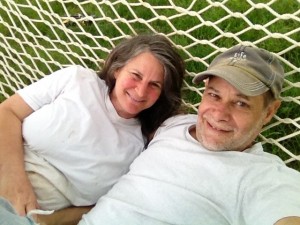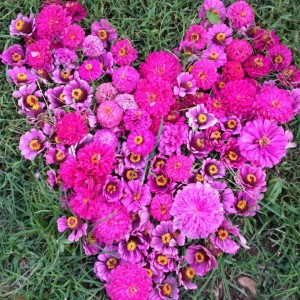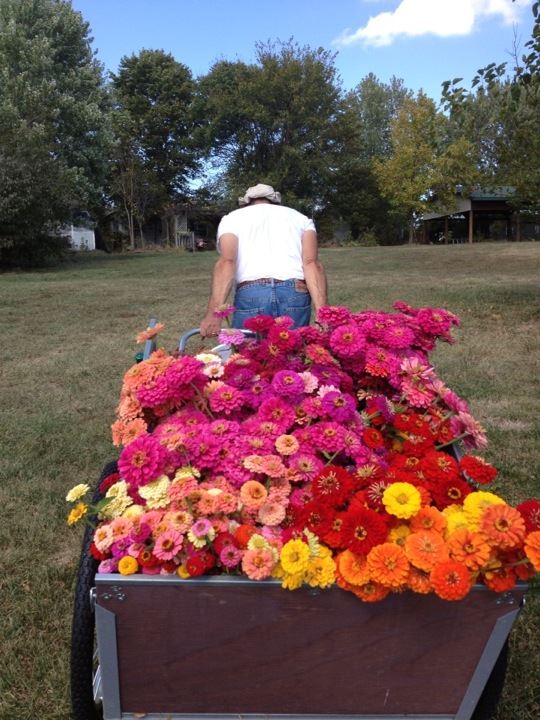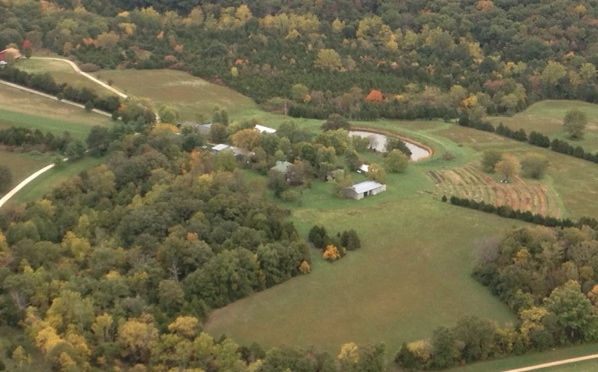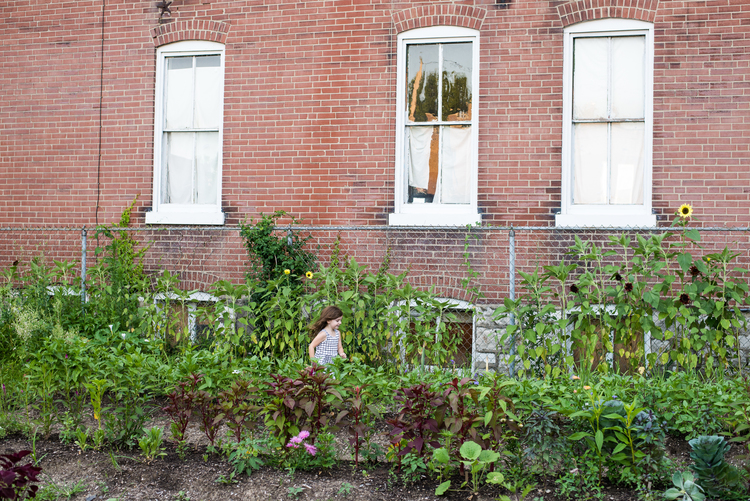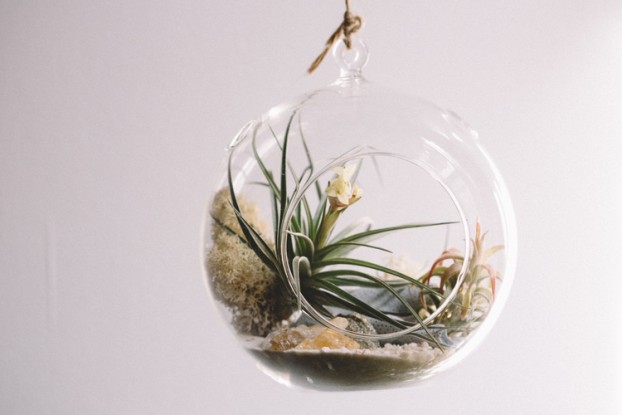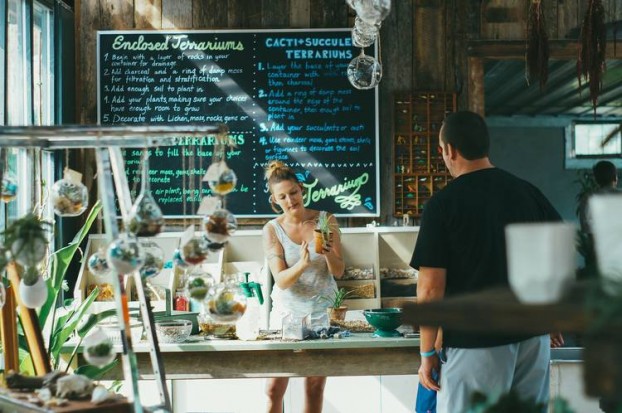Podcast: Play in new window | Download
Subscribe: Apple Podcasts | Podcast Index | RSS | More
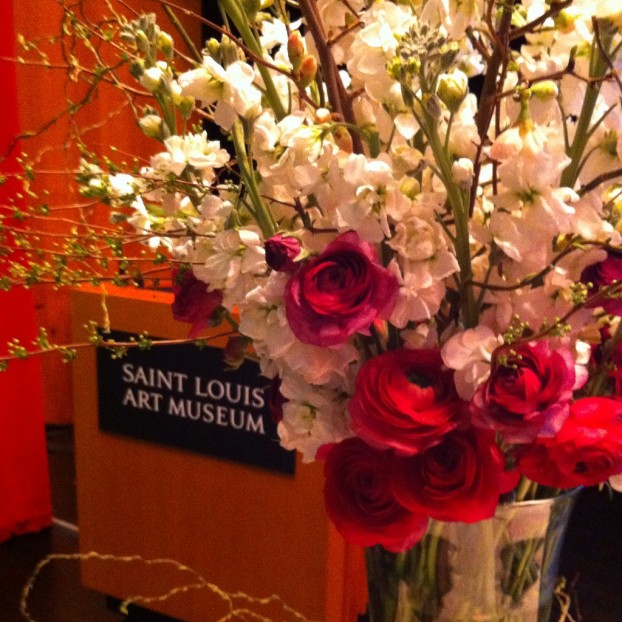
Seasonal branches from Flower Hill Farm paired with seasonal blooms from Urban Buds for my stage arrangement at St. Louis Art Museum.
In March I visited Urban Buds, a flower farm in the heart of St. Louis owned by Mimo Davis and Miranda Duschack.
And I know the conversation we recorded for this Podcast (click to hear Episode 238) inspired many of you interested in flower farming in the heart of a city as an alternative to using only rural land.
On that same visit to St. Louis, I also met others in The Slow Flowers Community, including several who attended my lecture and design presentation at the St. Louis Art Museum’s Art in Bloom. Two of those Missourians are guests of today’s podcast.
First up, you’ll hear my conversation with Vicki Lander of Flower Hill Farm.
Vickie and her husband Jack Oglander grow flowers on 35-acres of rolling hills, fields, and woods located in Beaufort, Missouri, one hour west of St. Louis.
In their fifth year of production, it’s their mission to continuously improve the art and science of flower farming.
Flower Hill Farm sells flowers to florists, designers, DIY brides restaurants and distributors, and at a local farmer’s markets in the greater St. Louis area.
The farm offers wedding and special event customers the freshest, locally-grown flowers possible and is a popular destination for “pick your own” custom parties designed for couples, families and friends preparing for their wedding ceremony.
Flower Hill Farm is guided by Sustainable practices, using organic farming methods. The farm has not pursued USDA Certified Organic labeling.
Vicki and Jack participate in a farmer-to-farmer certification program called Certified Naturally Grown, which is based on similar standards. Instead of using synthetically-derived fertilizers, pesticides, and herbicides, the couple strives to build good soil by amending with organic materials and minerals.
They tackle weeds and insect pests in a way that honors their commitment to long-term care of their farm, their watershed, their environment and the earth. To Vickie and Jack, farming practices matter, even if you don’t eat the flowers.
Flower Hill Farm delights in providing to those who value and seek out locally grown choices. As they explain on their web site: “What gives us pleasure is offering the freshest flower-buying experience. We love it when someone looks at our flowers, a smile emerges, and the thought, the question arises: Who can I give these flowers to…..?”
Vicki describes herself this way: Somebody loves flowers. Somebody loves sourcing just the right seeds that, if not collect and saved from her own farm, come from organic (if possible) and caring growers. Somebody loves planning, planting and caring for each seedling, watering, transplanting and tending to it. Somebody loves “vase life trials.” Somebody especially loves hands in dirt (soil, that is) and casting her shadow on her growing field. That someone would be Vicki Lander.
On the other hand, Farmer Jack (Jack Oglander), says he thinks farming is challenging. Farmers wear lots of hats, and must know how to handle many tools, responsibilities and physical tasks. Building and machine maintenance, irrigation, pruning, grounds keeping and fencing are current and ongoing projects– not to mention tilling, weeding, trimming and taking out the compost… Many farmers make invaluable use of a lifetime of experience when they wake up to a new morning… Some don’t have that lifelong advantage. At Flower Hill Farm, many of these tasks are up to Jack…. He’s still new to farming. He thinks his title should be: Assistant Branch Manager.
Vicki and Jack reached out to me before I came to St. Louis and offered to supply what they could for my design demo and lecture, despite the early time of year. They cut the most beautiful quince and forced it for me, as well as tender curly willow branches just starting to leaf out. We didn’t think we would have time to record a conversation, but when Vicki delivered the branches to me, we grabbed a short interview in her car. You’ll enjoy hearing her story and how she and Jack are developing a beautiful chapter of their lives at Flower Hill Farm.
Follow Flower Hill Farm on Facebook
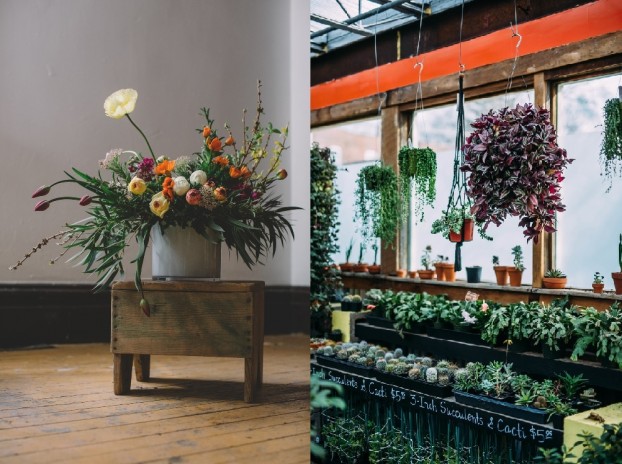
Flowers (left) and Plants (right) at Jessica Douglass’s cool flower & plant shop in downtown St. Louis, called “Flowers and Weeds.”
On the same trip, I also met and spent time with St. Louis florist Jessica Douglass.
Jessica and I were introduced virtually by our mutual friend Sally Vander Wyst, a Slow Flowers member in Milwaukie, Wisconsin, whose voice and story you’ve heard previously on this Podcast (we met and recorded that interview during The Flower House opening last October).
When Sally heard that I was heading to St. Louis, she told Jessica and I that we must meet — and I’m so happy that we did.
Jessica is the owner of a perfectly-named business: Flowers and Weeds, a retail floral studio and plant emporium on Cherokee Street in St. Louis. There is a greenhouse and a cutting garden, as well as a design studio where Jessica and her team create a popular selection of terrariums as well as romantic, free-form floral designs that allow flowers to have their own movement, inspired by the garden and nature.
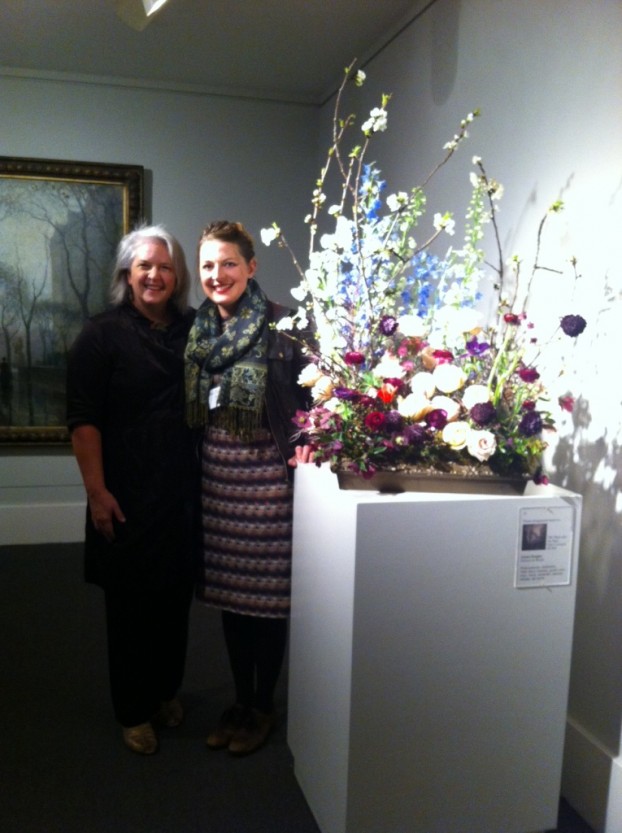
Jessica Douglass and I posed near her beautiful floral entry for the St. Louis Art Museum’s Art in Bloom exhibition.
With an on-site cutting garden of beautiful, seasonal flowers and herbs, Flowers and Weeds freely expresses year-round creativity.
Jessica believes it’s important to use what is currently beautiful and blooming, embracing seasons to include anything from spring’s ranunculus and freesia, to winter’s juniper and kale.
Her goal is to be as sustainable as possible as a designer and she states: If we can’t grow it, then we are committed to finding locally sourced flowers that are sustainably grown.
I didn’t have my wits about me when I met Jessica for dinner just after I arrived on my flight from Seattle to St. Louis.
We recorded this interview via Skype a few weeks later to combine with Vicki’s and my conversation. As it turns out, Jessica is a customer of Flower Hill Farm and she often features their flowers in her designs. So this is a perfect pairing to share with you today.
Follow Flowers and Weeds on Facebook
Follow Flowers and Weeds on Instagram
Thanks for joining today’s podcast. I learned so much and gained new insights into the business of flower farming and floral design through these conversations — and I know that you’ll want to check out Flower Hill Farm and Flowers and Weeds via their online sites . . . and if you should ever make it to St. Louis, be sure to visit them and see their flowers.
The Slow Flowers Podcast has been downloaded more than 94,000 times by listeners like you. THANK YOU to each one of you for downloading, listening, commenting and sharing. It means so much.
Until next week, you’re invited to join me in putting more American grown flowers on the table, one vase at a time. And If you like what you hear, please consider logging onto Itunes and posting a listener review.
The content and opinions expressed here are either mine alone or those of my guests alone, independent of any podcast sponsor or other person, company or organization.
The Slow Flowers Podcast is engineered and edited by Andrew and Hannah Brenlan. Learn more about their work at shellandtree.com.









